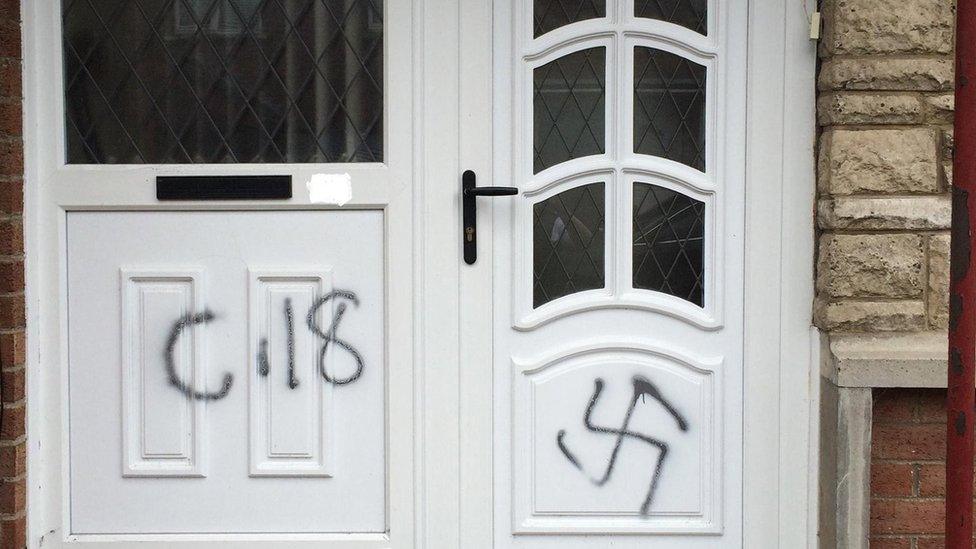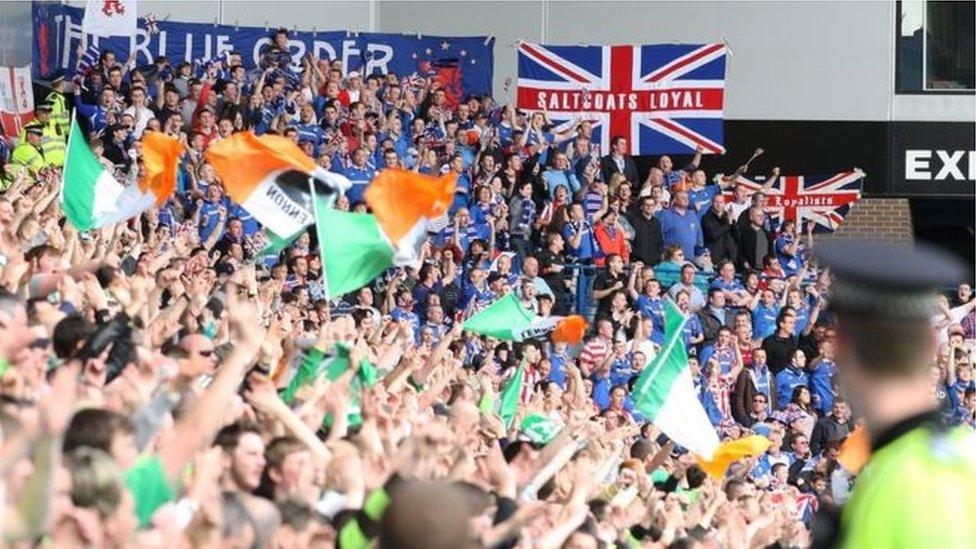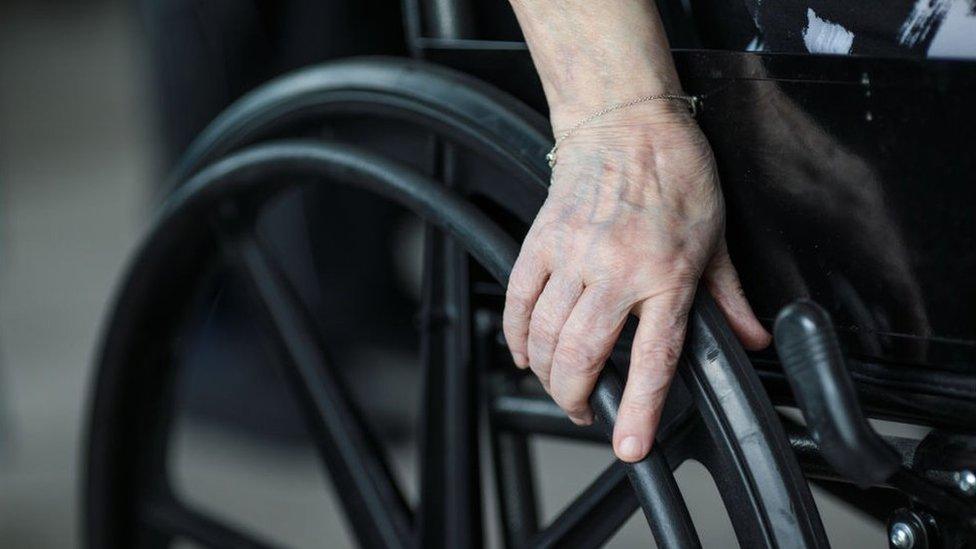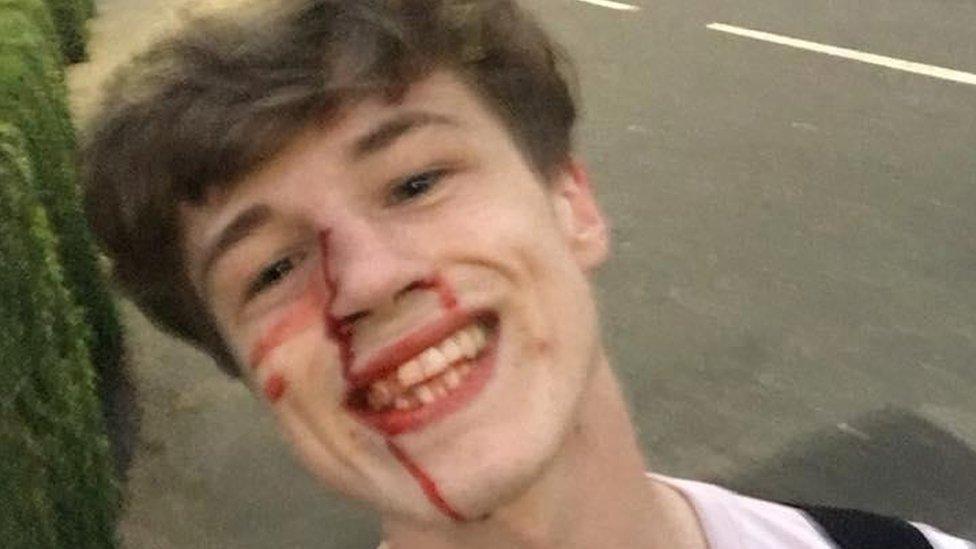Police must tackle hate crime problems, says watchdog
- Published
Blair Wilson was injured in an attack in Scotland, which police are investigating as a homophobic hate crime
Police in England and Wales must tackle "significant problems" in handling hate crime ahead of a possible rise in such offences after Brexit, a watchdog says.
Her Majesty's Inspectorate of Constabulary found inadequate responses in 89 of 180 cases it reviewed.
The watchdog said it took an average of five days for police to visit 73 victims, while 65 were not seen at all.
It said hate crime rose after the 2016 referendum and the same could happen when the UK leaves the EU in 2019.
The report, external - which is the first ever of its kind - said: "Police forces should prepare for this eventuality and make sure that the recommendations in this report are used in the future to improve the police response to hate crime victims."
'Postcode lottery'
A hate crime is defined, external as any criminal offence in which the victim, or another person, believes they were targeted because of their disability, race, religion, sexual orientation or transgender identity. Some forces are also piloting treating misogyny as a hate crime.
The watchdog's report looked at victims' experiences of reporting hate crime and how they are handled by police - not convictions.
The watchdog said there had been increases in the number of recorded hate crimes following events such as the murder of Lee Rigby in 2013, the referendum vote in June 2016 and the Westminster terror attack in 2017.
There was a "real possibility" of the same happening in 2019, it added.
When it came to recording hate crimes, the watchdog said victims faced a "postcode lottery", with 43 of the incidents being designated incorrectly at the time victims reported them.
Some incidents were given a hate crime "flag" without any apparent justification, while others were not flagged at all - despite being hate crimes.
Figures also showed that more than 3,000 recorded racially or religiously aggravated offences were not flagged as hate crimes.
And one force recorded 700 religiously aggravated crimes, despite more than half actually being racially aggravated.

Hate crimes target victims because of their disability, race, religion, sexual orientation or transgender identity
One case flagged by the watchdog was a 17-year-old girl who reported that she believed she had been assaulted because she was gay.
The incident was not flagged as hate-related at first, then later it was incorrectly recorded as racially or religiously aggravated.
In another incident, police questioned a trans woman's view that what she had experienced was a hate crime.
'Positive police practice'
Lead inspector Wendy Williams said: "Hate crime is a heinous crime because it strikes at the heart of who you are."
But while there were issues in some forces, she also said there were many examples of officers and staff dealing with hate crime victims sensitively and effectively, and there was evidence of "positive practice".
In 2016-17, hate crime accounted for 2% of all police-recorded offences in England and Wales.
The figures showed the number of recorded offences increased by 57% between 2014-15 and 2016-17.
The watchdog said as well as there being a genuine rise, more people coming forward to report hate crimes and improvements in recording practices had also contributed.
The National Police Chiefs' Council lead on hate crime, Assistant Chief Constable Mark Hamilton, said hate crime had been a priority for the police for many years and their response was "amongst the best in the world".
He added: "HMICFRS's recommendations will help us to address inconsistencies around the country and provide a more effective response to victims.
"We will look carefully at the response times to victims."

- Published9 May 2018

- Published31 May 2018

- Published15 June 2018

- Published13 July 2018
